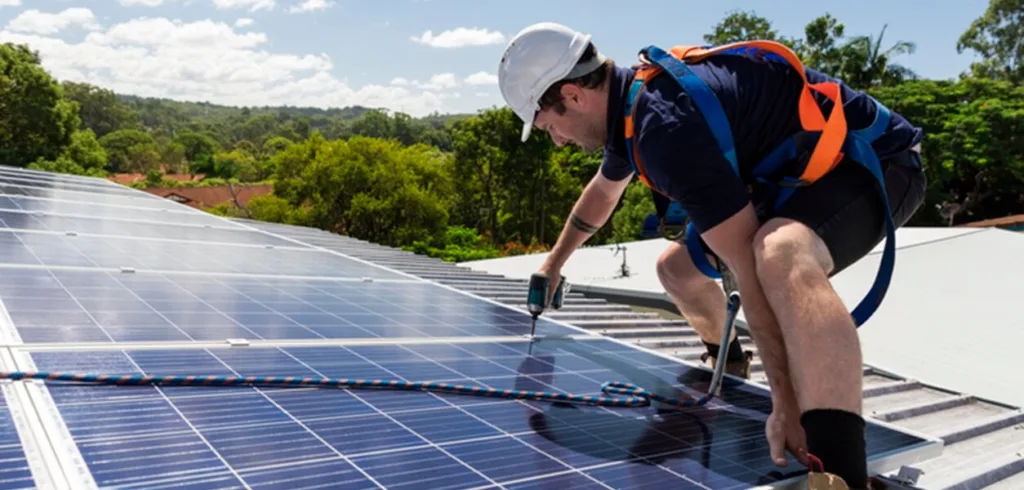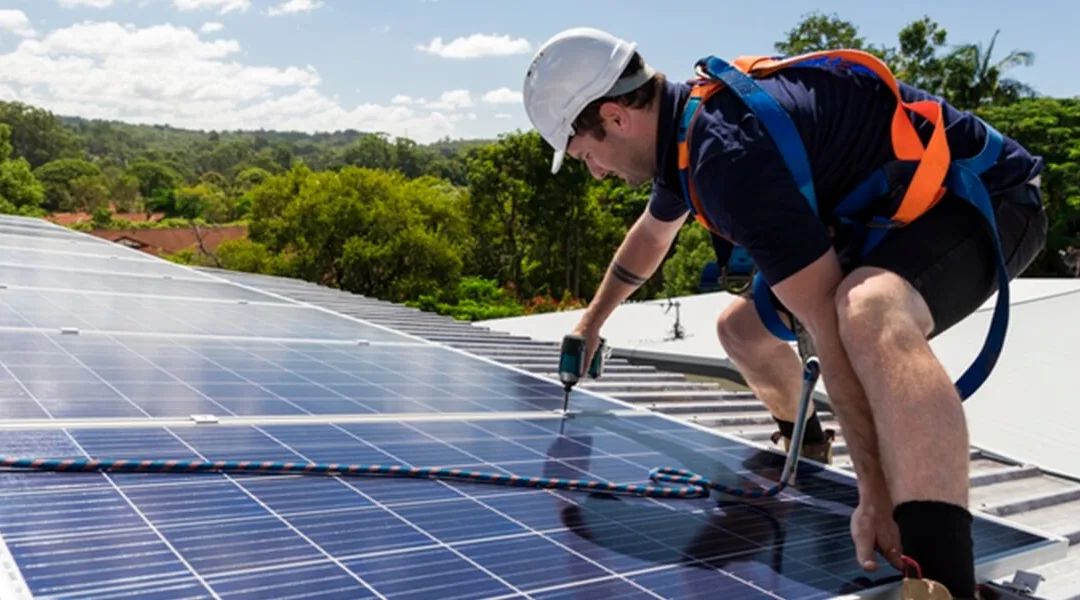
If you are worried about the effect rising energy prices are having on your household budget, you’re not alone. Research from the Energy Consumers Australia confirms that a majority of Australians (56%) believe energy will be unaffordable within three years.
That’s a shocking statistic, but there are ways to meet this challenge.
Creating a more energy-efficient home was the subject of a recent ABC TV news report by Jane Norman. It’s a great report and we suggest you take time out to watch the seven-minute video which is super informative.
At the centre of the ABC TV story is Yvonne, who lives in Port Arlington, a seaside town in southern Victoria. Estimates of average Australian household energy bills have risen from $1300 in December 2021 to $1926 in September 23 – nearly 50%. By contrast, Yvonne is paying $80 a month. This includes heating her pool – a necessity for pool owners living in Victoria as the locals will tell you!
How did she do this? She went solar, with rooftop panels, and a battery and inverter in her garage. In the interview she shared that the cost was about $16,500, but subsidies reduced this to around $10,400. She estimates this investment will take about six years to pay off.
But we think, for many retirees, this amount might be subsidised even further! As informative as it was, the ABC report did not consider the effect that such expenditure would have for the many retirees on a part Age Pension, or those close to entitlement, but still over the Assets limit.
Here’s how it could work.
As we covered in one of our most popular articles last year, once you are over the minimum asset limit, the taper rate will be applied. The Age Pension taper rate reduces payments by $3 a fortnight for every $1,000 of assets above the assets test free area. In this case, with an investment of $10,400 after subsidies are applied, someone on a Part-Age Pension would have a reduction in their assets. Because of the taper rate they would therefore receive an extra $31.20 per fortnight, or $811.20 per annum, meaning the investment in alternative energy is paid off even faster – perhaps in three or four years rather than six.
Knowing the very real effect of reduced assets on Age Pension entitlements is extremely powerful. If you are on the Age Pension (or hope to be), using the Retirement Essentials Age Pension Entitlements Calculator will allow you to ‘play’ with the numbers by checking your situation before and after investing in this type of home improvement.
The resulting increase in income is not confined to investment in alternative energy, of course. You may wish to renovate your primary residence just to update it, or perhaps make improvements to support ageing in place. Many householders are also installing water tanks to try to reduce costly water bills. All such improvements could result in higher income.
The net result from an assets point of view is even more positive. You have moved wealth from a means tested environment, where your assets determine your eligibility and are deemed for the income test as well. This wealth is now added to the value of your home. But as the home is fully exempt from Age Pension scrutiny, overall you are likely to be better off. This investment is also likely to boost the appreciation of your home over the years.
Making an investment in alternative energy is a big decision. It can be difficult to fully understand all the different rules and subsidies which are generally state or territory funded. A good starting point is the Energy consumers Australia website so you can check the competitiveness of your current arrangements. If you think solar panels could work well for you, the Choice website has a very thorough overview of how to go about it, including a handy estimator of the cost of installation in your specific postcode.
Need help?
If you would like support to better understand the way that Centrelink views income and assets Retirement Essentials offers two very relevant consultations.
The first is a $75 Age Pension consultation which allows you to speak directly with an Age Pension specialist.
The Maximise Your Entitlements is a longer, adviser- guided consultation which gives you the chance to consider your wider financial situation and whether you are making the most of what you have.
What’s your situation?
Are you watching your power bills tick up in an alarming fashion?
Or do you feel you’ve got them under control? If so, we’d love to hear your secret!






If you are able to get a power bill subsidy from you State and territory Government you can use that toward paying off your solar unit in addition to interest free loans and other government support.
If you buy electricity at wholesale rates it’s cheaper than paying retail prices. Just go to the Amber Electric website.
Is payment into super considered a reduction of assets?
Hi Peta, thank you for your question. The answer is it depends. If the superannuation account being topped up is in accumulation phase AND in the name of someone who is under the Age Pension age (67) then yes. If the account holder is over pension age or the account is in pension phase then no it will not make a difference.
If you don’t qualify for a pension but can get the Lower Income
Health Care card, this also qualifies you for energy subsidies in many jurisdictions.